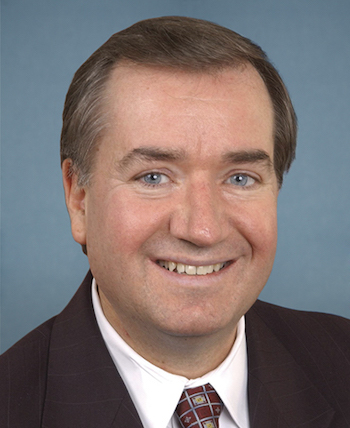Ramping up diplomatic pressure on Cambodia’s ruling CPP, the U.S. Congress has called for Prime Minister Hun Sen to end the harassment of opposition figures and drop all politically motivated charges against CNRP lawmakers.
The approval of a resolution by the U.S. House of Representatives’ Foreign Affairs Committee last week follows a similar message sent to the government in late June in a Senate spending bill that proposes making U.S. aid to Cambodia in 2017 contingent on an end to “violence and harassment” against the opposition and civil society.

“The recent violence against opposition leaders shows the true, thuggish nature of the Hun Sen regime. We need to continue to press for a return to democracy for the sake of the Cambodian people,” Foreign Affairs Committee chairman Ed Royce said in a statement on Thursday.
Mr. Royce, a Republican congressman from California, said the committee’s resolution “rightly calls on Hun Sen to respect freedom of the press and the rights of its citizens to protest, and it urges the government of Cambodia to end its political attacks on opposition party leaders.”
In June, the European Parliament passed a similar resolution accusing the Cambodian government of laying politically motivated charges against the CNRP. It proposes cutting aid to Cambodia—the E.U. has pledged $465 million through 2020—if the CPP’s respect for human rights fails to improve.
The U.S. resolution notes widespread doubts about the integrity of the 2013 national election, the deadly suppression of a violent protest in early 2014, the beating of CNRP lawmakers outside the National Assembly in October last year and the reactivation of a 7-year-old defamation conviction against opposition leader Sam Rainsy, who is currently in self-imposed exile to avoid an accompanying two-year prison sentence.
The resolution concludes by urging Mr. Hun Sen and the CPP to “end all harassment and intimidation of Cambodia’s opposition; drop all politically motivated charges against opposition lawmakers [and] allow them to return to Cambodia and freely participate in the political process.”
Government spokesman Phay Siphan said he had not read the resolution but dismissed it as interference by U.S. lawmakers, whom he accused of colluding with the CNRP.
“We are an independent state—a sovereign state,” he said on Friday. “That’s why nobody can make a judgement except the Cambodian people, that is why the resolution is misinformation.”
Chak Sopheap, executive director of the Cambodian Center for Human Rights, welcomed the resolution, but said more action was required.
“Despite the increasing influence of China, the Cambodian government still wants the approval and support of Western donor governments in order to lend it international legitimacy on the world stage, so such resolutions can be meaningful,” she said.
But the resolution neglected to highlight the threats facing Cambodian civil society, she noted, including the recent arrests of rights workers and the assassination of political analyst Kem Ley.
Phil Robertson, deputy Asia director for Human Rights Watch, said the resolution was a clear sign of how rapidly the human rights situation was deteriorating in Cambodia.
“Passage of this resolution is an important message to PM Hun Sen that his abusive actions are catching the attention of world leaders,” he said in an email. “And there will be a hard time ahead for his government if it doesn’t stop.”